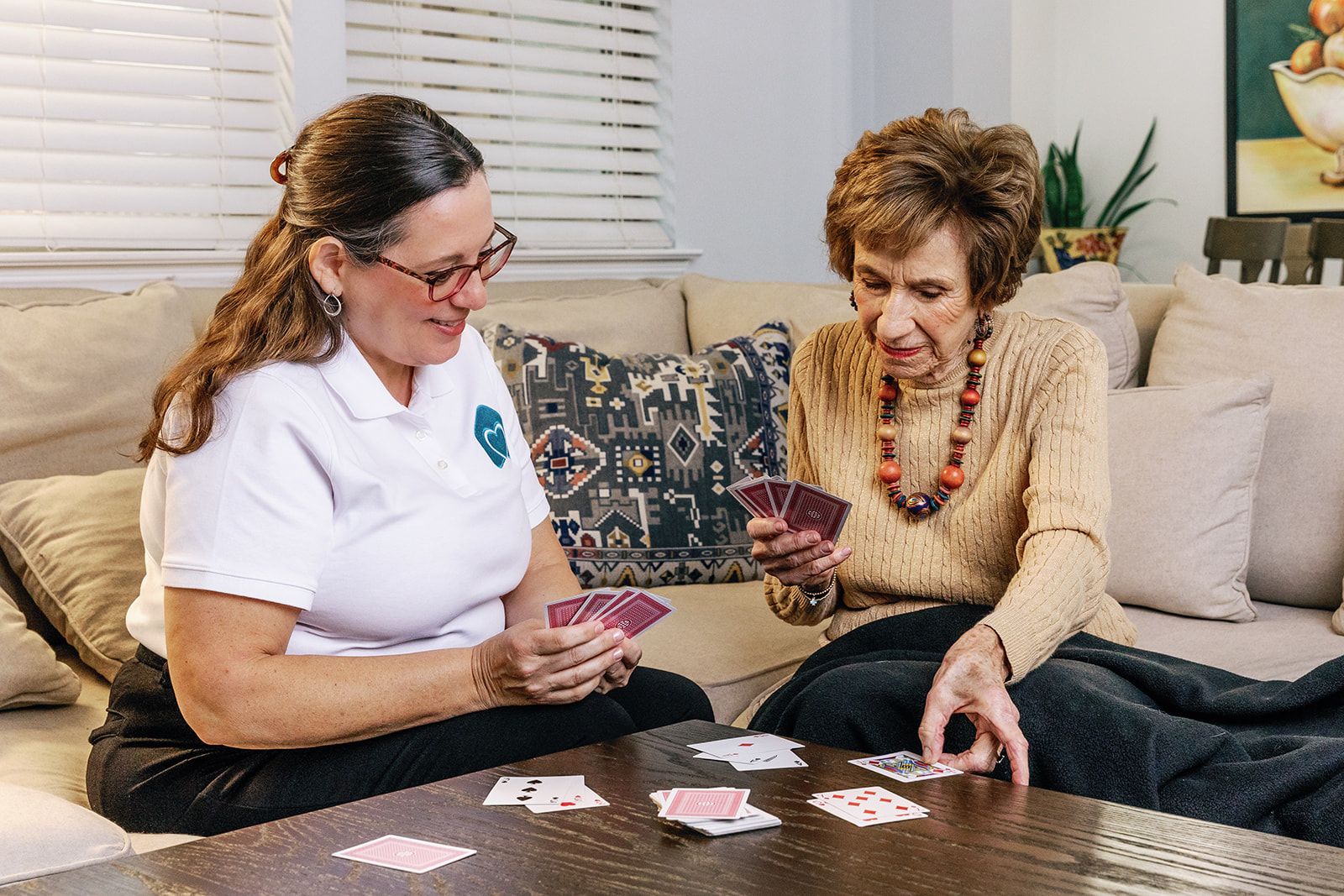What Are the Signs of Bad Caregiving?
Trusting someone to care for your aging parent, spouse, or grandparent isn't something to take lightly. When a caregiver shows up, they're stepping into a sacred role: one that involves safety, dignity, and the quality of your loved one's everyday life. Sadly, not all care is created equal.
If you've ever worried that a caregiver might be phoning it in (literally or figuratively), you're not alone. This post breaks down what bad caregiving looks like, how to spot it early, and what great care actually means. And if you're in Atlanta, we'll also show you how 4 Seasons Home Care is setting the standard for what compassionate, high-quality care should be.
Table of Contents
- 1. Lack of Attentiveness or Compassion
- 2. They're Always on Their Phone
- 3. Poor Hygiene or Safety Standards
- 4. No Initiative or Proactive Help
- 5. Lack of Certification or Training
- 6. Constant Tardiness or No-Shows
- 7. Not Following the Care Plan
- 8. Disrespect or Poor Communication
- 9. Your Gut Says Something's Off
- Caregiver Quality Comparison Table
- Why 4 Seasons Home Care Is Different
- FAQs
1. Lack of Attentiveness or Compassion
Compassion isn't optional in caregiving. If a caregiver seems cold, dismissive, or is rushing through tasks without engaging, it's a warning sign. Quality caregivers know that emotional presence matters just as much as physical assistance.
2. They're Always on Their Phone
This one is sadly common, and unacceptable. If a caregiver is glued to their phone during shifts, they're not doing their job. Distraction leads to missed medication times, fall risks, and emotional neglect.
3. Poor Hygiene or Safety Standards
If your loved one starts looking unkempt, smells of urine, or their environment is consistently messy or unsafe, that's a sign something is off. A great caregiver makes sure personal hygiene and household cleanliness are maintained with dignity.

4. No Initiative or Proactive Help
Bad caregivers do the bare minimum and wait to be told what to do. Great caregivers notice what needs to be done — from warming up a meal to offering a blanket without being asked.
5. Lack of Certification or Training
Do you know many caregivers in Georgia are placed into homes without proper training or background checks? At 4 Seasons, every caregiver is background-checked, trained, and held to the highest standard. If your current caregiver can't tell you what CPR stands for, that's a red flag.
6. Constant Tardiness or No-Shows
Late or unreliable caregivers don't just cause inconvenience, they create real risks. Seniors depend on consistent help for medications, meals, and companionship. A professional caregiver respects your time.
7. Not Following the Care Plan
If you've written out detailed care instructions and they're being ignored, that's a problem. A good caregiver keeps notes, checks the plan daily, and updates you on changes. Sloppy or forgetful care isn't just annoying, it can be dangerous.
8. Disrespect or Poor Communication
Families deserve regular updates, not one-word responses. If your caregiver is rude, defensive, or evasive, or worse, talking down to your loved one...it's time for a change.
9. Your Gut Says Something's Off
If your intuition is telling you something's not right, listen to it. You shouldn't have to wonder whether your loved one is being truly cared for. Peace of mind is part of the service.
Caregiver Quality Comparison Table
| Sign of Bad Caregiving | What to Look For | Why It Matters |
|---|---|---|
| Phone Use During Shift | Texting or scrolling while client is present | Risk of accidents or missed care |
| No Formal Training | Doesn't know transfer techniques or medication prompts | Can cause injury or neglect |
| Disorganized or Sloppy | Care plan not followed, tasks forgotten | Breakdown in communication and health decline |
| Emotionally Disconnected | Minimal conversation, no warmth | Leads to isolation and sadness |
| Always Late or Cancels | Unpredictable arrival times, no coverage | Creates stress and puts care at risk |
Why 4 Seasons Home Care Is Different
We hear it all the time: "My last caregiver was sweet, but they just didn't really *do* anything." That's not how we operate. Our caregivers are thoroughly vetted, trained, and supervised. They're not just sitting on the couch playing on their phones; they're actively helping, noticing things, and forming relationships with the people they care for.
Whether it's a short shift or 24/7 care, we believe in care that honors people. That means communication, compassion, and competence. Every. Single. Day.
Need help at home? Reach out today and we'll walk you through what real quality care looks like in Atlanta.
Frequently Asked Questions
What should I do if I suspect bad caregiving?
Start documenting what you're seeing: missed tasks, odd behavior, red flags — and consider replacing the caregiver. You're allowed to ask questions and advocate for better care.
Are all caregivers in Georgia certified?
No. Georgia does not require certification for private-duty caregivers unless they're in a licensed home care agency like 4 Seasons. That's why it's so important to choose an agency that holds itself to higher standards.
How can I trust a home care agency?
Look at reviews, ask about training and background checks, and see how responsive they are. If they seem slow or vague before you hire them, that won't magically get better later.
What makes 4 Seasons different?
We don't do fluff care. We hand-pick compassionate professionals who are present, proactive, and passionate about the work. And we don't leave families in the dark — you'll always know what's going on with your loved one.
